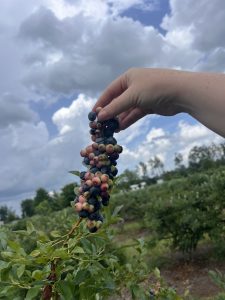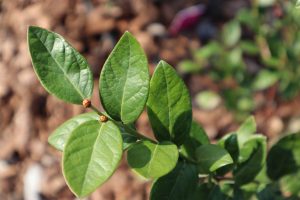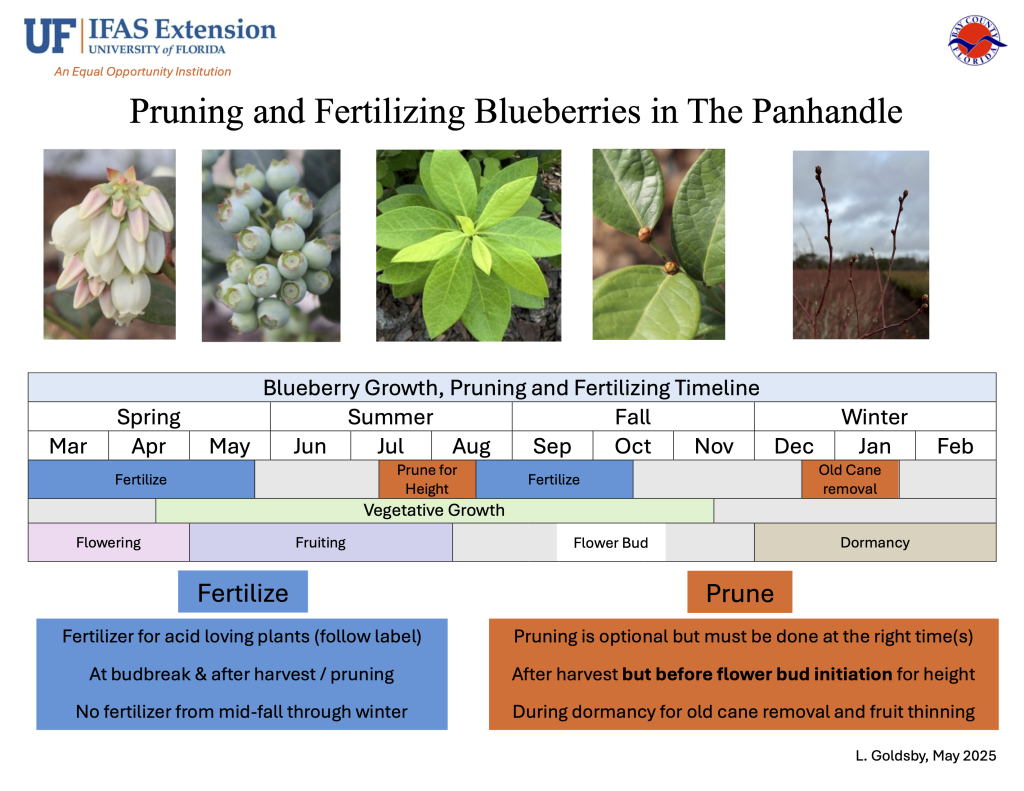When, how, and if you prune your blueberries depends on your goals and how you want to manage your plants. Pruning is usually done to control plant height, open up the canopy, and remove older canes that are less productive. Blueberry canes form flower buds starting from the upper ends of the stems. As plants grow taller, the best berries develop higher and higher. Lower, shorter canes will still produce fruit, but the upper canopy can shade them, leading to fewer berries within easy picking height. Rabbiteye varieties common in the Panhandle can reach 20 feet (7 m) if left unpruned. Some gardeners like leaving the upper berries for birds while harvesting the lower fruit for themselves, while others prefer to prune plants shorter to keep berries within easy reach.
Blueberry plants can be pruned at two main times of year:
After harvest (summer): This is the time to reduce plant height, but it must be done soon after the last berries are picked and before fall, when flower buds form inside the stems. If you wait too long, you risk cutting off next season’s flowers and losing fruit. After summer pruning, it’s a good time to apply an acid-loving plant fertilizer to encourage new growth.
During dormancy (winter): In winter, you can remove dead, damaged, or old unproductive canes to open up the canopy and allow for new growth. Avoid removing more than 30% of the total canes in a single year. Winter is also when fruit thinning can be done. If there are too many buds on the plant, the berries may stay small. By selectively removing canes, the plant can produce fewer but larger berries.
Pruning can be an important management tool, but it isn’t mandatory. If you choose to prune, make sure to do it at the right time for your goal- whether it’s controlling height, encouraging bigger berries, or simply refreshing older plants. See the chart below for a seasonal guide to pruning and fertilizing blueberries in the Panhandle. Pruning and Fertilizing Handout Download
- Land, Water, and Lawns: Why Everyday Choices Matter - December 4, 2025
- Let’s Scout the Garden - October 23, 2025
- Non-GMO Seeds at the Garden Center? They All Are! - September 25, 2025



